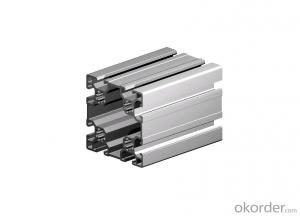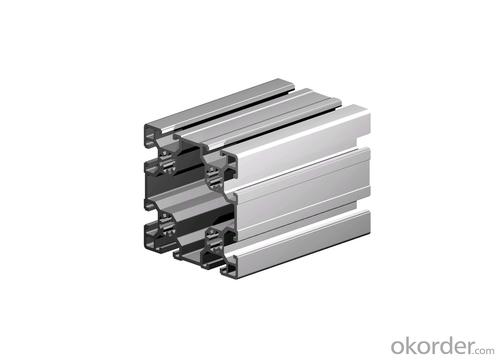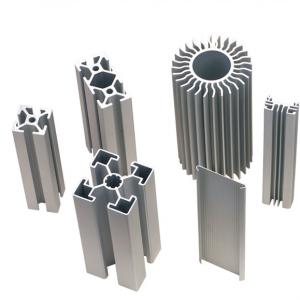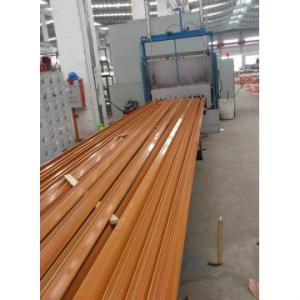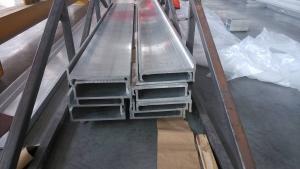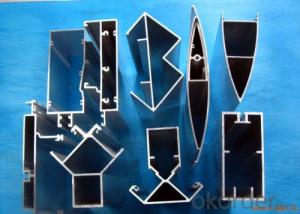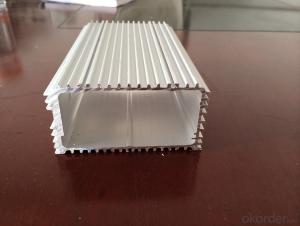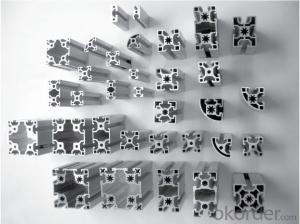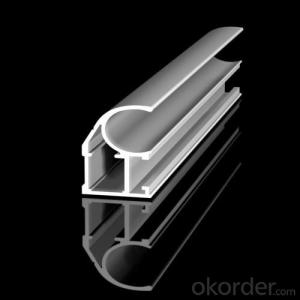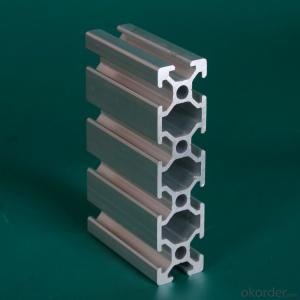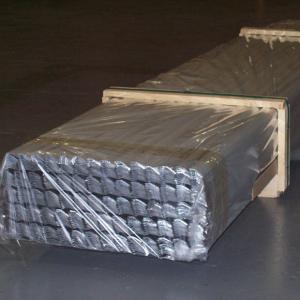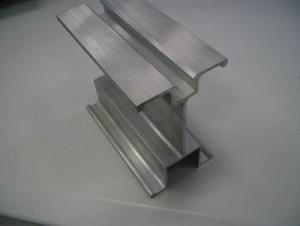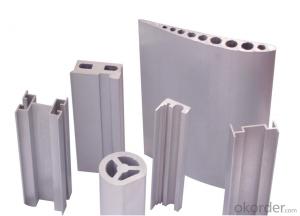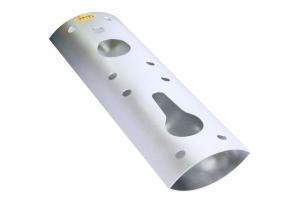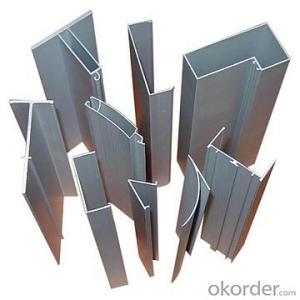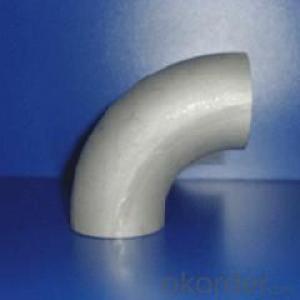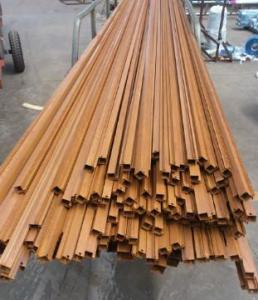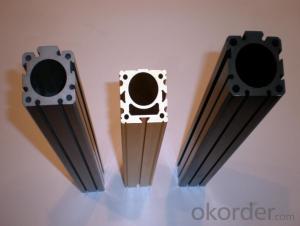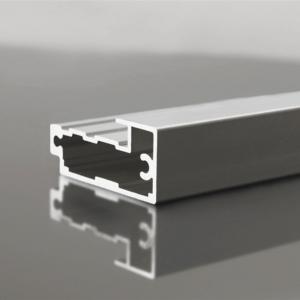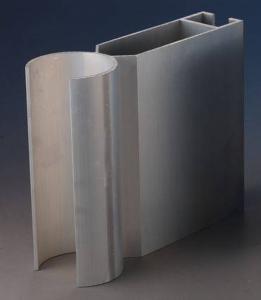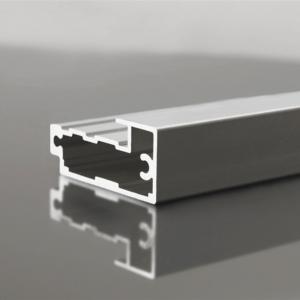Aluminum Fascia Profiles for Industrial Aluminium Extrusion Applications
- Loading Port:
- Shanghai
- Payment Terms:
- TT OR LC
- Min Order Qty:
- 1 m.t.
- Supply Capability:
- 50000 m.t./month
OKorder Service Pledge
OKorder Financial Service
You Might Also Like
Specification
Product Description
Product Name | Aluminium Extrusion Profiles For Industrial Application |
Alloy | Al 6063 T5 /T6 or 6061 T4/T6 or as customers' need |
Surface | Aluminum profiles of mill finish, powder coating, anodizing, polishing, sand blasting, electrophoresis and wood color. |
Profile shape | According to drawings or re-design as requested or market needs. |
Price | Based on Aluminum Ingot Price + Process fee |
Payment term | T/C T/T 30% deposit and 70% pay against copy of B/L |
Certificate | ISO9001 ISO14001 |
Warranty | 1. GB5237-2008 equal to EN12020-1.2(2001); 2. Within 15 years without powder peeling off; |
Product Advantages
1. Plenty of surface treatments for your choice, for example oxidation, electrophoresis and static powder coating, etc.
2. Strict control for surface finish, very little scratch.
3. Accurate mold as well as accurate size.
4. Standard alloy composition
5. Both ends of the profiles are very plain and with no burr.
FAQ
1. What is your main product?
We can supply the aluminium complete system, including aluminum billets, aluminum profile for windows and doors, aluminum for curtain wall, alumimun framwork, and kinds of aluminum windows and doors.
2. What’s your price?
The price is based on buyer's specific requirement, so please provide below information to help us quote exact price to you.
3. What is your payment term?
30% - 50% down payment, the balance payment against, and L/C is available.
- Q: How to prevent the aging of aluminum profile hardness is not enough?
- Raw materials, alloy, cast bar qualityDuring extrusion, the outlet temperature is guaranteed to be above the solid solution temperature,Cooling, quenching speed guaranteed as fast as possible
- Q: Can aluminum profiles be utilized as materials for constructing roofs?
- <p>Yes, aluminum profiles can be used for roofing materials. They are known for their durability, corrosion resistance, and lightweight properties, making them an excellent choice for roofing applications. Aluminum profiles can be shaped and joined to create a strong and weather-resistant roofing system. They are also easy to install and maintain, and can be recycled, contributing to their environmental sustainability.</p>
- Q: This question asks for an overview of the various types of aluminum profiles that are utilized in the construction of interior partitions and ceilings.
- <p>Aluminum profiles for interior partitions and ceilings come in various types, each serving specific purposes and functions. Common types include: 1. U-Channel profiles, used for creating the framework of ceilings and partitions. 2. T-profiles, often used as a cover for the joints between panels. 3. H-profiles, which are used as main beams in ceiling systems. 4. Angle profiles, used for corner connections and support. 5. Flat bar profiles, used for decorative or functional purposes in ceilings and partitions. 6. Box profiles, which can be used for both structural and aesthetic applications. 7. Special profiles, designed for specific applications such as lighting fixtures or air conditioning ducts. These profiles are chosen based on the design requirements, load-bearing needs, and aesthetic preferences for the project.</p>
- Q: Can aluminum profiles be used in the construction of modular healthcare facilities?
- Yes, aluminum profiles can be used in the construction of modular healthcare facilities. Aluminum profiles are lightweight, durable, and corrosion-resistant, making them suitable for modular construction. They can be easily assembled, disassembled, and reconfigured, allowing for flexibility in the layout and design of healthcare facilities. Additionally, aluminum profiles can be powder-coated to provide a clean and hygienic surface, which is essential for healthcare environments.
- Q: What are the different accessories available for aluminum profiles?
- There are a wide range of accessories available for aluminum profiles that can enhance their functionality and versatility. Some of the common accessories include: 1. T-nuts: T-nuts are used to create threaded connections within aluminum profiles, allowing for easy attachment of various components such as brackets, panels, and fasteners. 2. Corner connectors: These connectors are used to join aluminum profiles at right angles, enabling the creation of sturdy and rigid structures. They come in various designs, such as external or internal corner connectors. 3. End caps: End caps are used to seal the open ends of aluminum profiles, providing a clean and finished look while also protecting against dust, debris, and potential injuries. 4. Brackets and fasteners: Brackets and fasteners are essential accessories for securing and supporting components within aluminum profiles. They come in various shapes and sizes to accommodate different applications. 5. Panel mounts: Panel mounts provide a secure and convenient way to attach panels, boards, or other flat surfaces to aluminum profiles. They can be easily adjusted or removed as needed. 6. Hinges and handles: These accessories are commonly used in applications where doors, lids, or covers need to be attached to aluminum profiles. Hinges allow for smooth opening and closing, while handles provide a comfortable grip. 7. Cable management solutions: Cable management accessories such as cable clips, cable ducts, and cable ties are available to keep wires and cables organized within aluminum profiles, ensuring a neat and professional appearance. 8. Leveling feet and casters: Leveling feet and casters are useful accessories for aluminum profile-based structures that need to be mobile or require stability on uneven surfaces. Leveling feet help adjust the height and ensure stability, while casters provide mobility. 9. LED lighting solutions: Aluminum profiles are often used for LED lighting applications, and various accessories are available to integrate lighting strips, diffusers, and connectors for a seamless and professional lighting solution. 10. Sensors and switches: Accessories like sensor mounts and switch brackets are designed to integrate sensors or switches into aluminum profiles, allowing for easy installation and integration into automation or control systems. These are just a few examples of the many accessories available for aluminum profiles. The wide range of options allows for customization and adaptation to specific needs and applications, making aluminum profiles a versatile and reliable choice for various industries and projects.
- Q: Shenzhen aluminum profile manufacturers which good?
- Explain as follows: preparing goods, recruit a few operator, big online promotion can be opened. Those who are often hurt are our buyers. Miss wiring mostly do not know how to use, only know the unit price. How to use to meet customer needs; how to make the most cost-effective; in different venues that kind of connection is the best; these are they can not answer accurately. Only know the cheapest and recommended profile connection the cheapest; this connection is the lowest cost, but the cost of artificial, a connection is the weakest, aluminum convenience wouldn't be reflected, and will bring much trouble for the future reconstruction. But the wiring girl will push it one way.Third: in production of aluminium supplierExplain as follows: in the production of aluminum suppliers, are generally engaged in this industry for more than 10 years, and their users have very rich experience, have a good understanding and knowledge of the quality and performance of products, suitable for the requirement of the customers will recommend price is a good product, choose a convenient and practical accessories.
- Q: Are aluminum profiles suitable for mass production or large-scale projects?
- Yes, aluminum profiles are highly suitable for mass production or large-scale projects. Aluminum is a lightweight and durable material that offers numerous advantages for industrial use. Its strength-to-weight ratio is excellent, allowing for the creation of lightweight but robust structures. This makes it easier to transport and assemble large-scale projects while maintaining structural integrity. Aluminum profiles can be easily extruded into various shapes and sizes, providing flexibility in design and accommodating different project requirements. The extrusion process is highly efficient, making it cost-effective for mass production. Additionally, aluminum is a highly recyclable material, making it environmentally friendly and sustainable for large-scale projects. Moreover, aluminum profiles offer excellent corrosion resistance, which is crucial for projects in outdoor or harsh environments. They can withstand extreme temperatures, UV radiation, and moisture, ensuring long-term durability and reducing maintenance costs. The versatility of aluminum profiles also allows for easy integration with other materials, such as glass or composite panels, enhancing the aesthetic appeal and functionality of the final product. Overall, the versatility, strength, lightweight nature, cost-effectiveness, and environmental sustainability of aluminum profiles make them an ideal choice for mass production or large-scale projects.
- Q: Are aluminum profiles suitable for electrical conductivity applications?
- No, aluminum profiles are not suitable for electrical conductivity applications.
- Q: Can aluminum profiles be used for partitions and dividers?
- Partitions and dividers can indeed be made using aluminum profiles. This material is highly versatile, being lightweight, long-lasting, and resistant to corrosion. Therefore, it is an ideal option for applications like these. With aluminum profiles, it is effortless to fabricate and personalize different designs for partitions and dividers. Whether it is room dividers, office partitions, or retail space separators, the possibilities are endless. Moreover, these profiles can be used in both residential and commercial environments to create practical and visually appealing spaces. Additionally, opting for aluminum profiles ensures convenient installation, maintenance, and potential modifications in the future.
- Q: What are the advantages of using aluminum profiles in the automotive aftermarket?
- There are several advantages of using aluminum profiles in the automotive aftermarket. Firstly, aluminum profiles are lightweight yet strong, making them ideal for automotive applications. By using aluminum profiles instead of traditional steel or other heavy materials, vehicles can be made lighter, resulting in improved fuel efficiency and reduced emissions. This is especially important in today's world where environmental concerns are at the forefront. Secondly, aluminum profiles offer excellent corrosion resistance. This is crucial for automotive parts that are exposed to various weather conditions and road salt. Unlike steel, aluminum does not rust, making it a durable and long-lasting choice for aftermarket automotive components. Additionally, aluminum profiles can be easily customized and shaped to fit specific design requirements. This flexibility allows for the creation of complex and intricate designs that can enhance the aesthetics and functionality of aftermarket automotive parts. Whether it is for body panels, interior trim, or structural components, aluminum profiles can be easily tailored to meet the unique needs of each vehicle. Furthermore, aluminum profiles have excellent thermal conductivity. This means that they can efficiently dissipate heat, making them suitable for applications such as heat exchangers or cooling systems in the automotive aftermarket. This property helps to prevent overheating and ensures optimal performance of the vehicle. Lastly, aluminum is a highly recyclable material. This makes it a sustainable choice for the automotive aftermarket, as it can contribute to reducing waste and minimizing the environmental impact. By using aluminum profiles, manufacturers and consumers can participate in the circular economy by recycling and reusing the material, thereby reducing the overall carbon footprint. In conclusion, the advantages of using aluminum profiles in the automotive aftermarket are clear. From weight reduction and improved fuel efficiency to corrosion resistance, customizability, thermal conductivity, and sustainability, aluminum profiles offer numerous benefits that make them an excellent choice for aftermarket automotive components.
Send your message to us
Aluminum Fascia Profiles for Industrial Aluminium Extrusion Applications
- Loading Port:
- Shanghai
- Payment Terms:
- TT OR LC
- Min Order Qty:
- 1 m.t.
- Supply Capability:
- 50000 m.t./month
OKorder Service Pledge
OKorder Financial Service
Similar products
Hot products
Hot Searches
Related keywords
